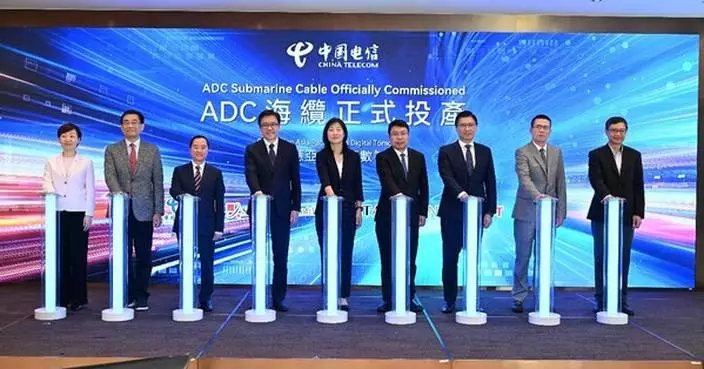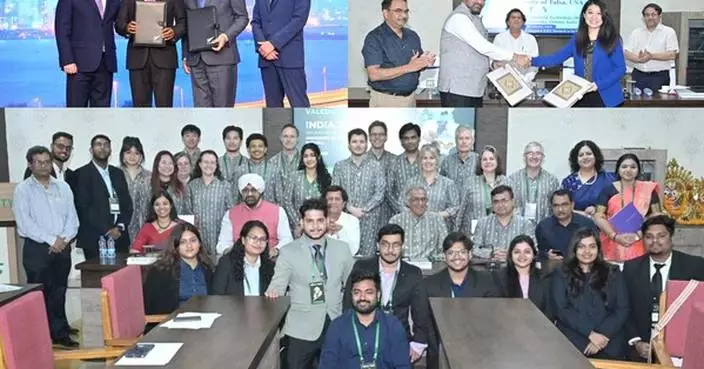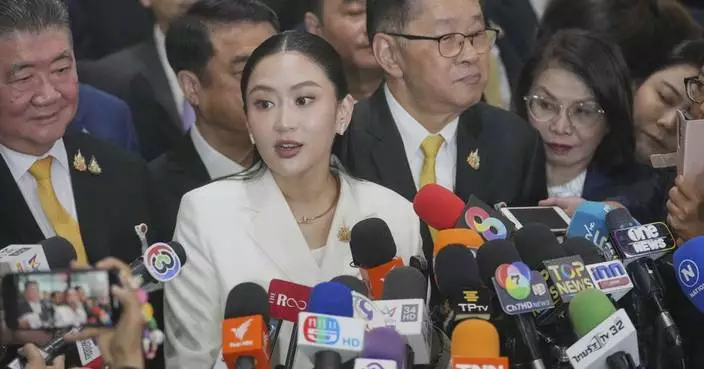KUALA LUMPUR, Malaysia, March 27, 2025 /PRNewswire/ -- Subang Jaya Medical Centre (SJMC) has achieved a significant milestone in patient care, becoming the first hospital in Asia-Pacific to hold four Australian Council on Healthcare Standards International (ACHSI) Centre of Excellence certifications. The latest accreditations recognise SJMC's Cardiology, Gastroenterology, and Paediatric services, complementing its existing certification for oncology.
This latest achievement further enhances SJMC's impressive record of healthcare excellence, which includes three-time Joint Commission International (JCI) accreditations and six-time Malaysian Society for Quality in Health (MSQH) accreditations. SJMC is also one of the four (4) finalists for the Flagship Medical Tourism Hospital Programme 2023–2025, an initiative by the Malaysia Healthcare Travel Council (MHTC), supported by the Ministry of Health Malaysia, aimed at establishing Malaysia as a global leader in healthcare tourism. These accolades demonstrate the hospital's commitment to meeting both national and international standards.
Deputy Australian High Commissioner to Malaysia, Mr Simon Fellows, who attended the certification ceremony, congratulated SJMC, stating, "The accreditations that SJMC has been awarded certify that SJMC meets the highest international standards for healthcare services. Australia is proud to support Malaysia's growing reputation for healthcare excellence, and we look forward to strengthening the healthcare partnership between our two countries."
The ACHSI evaluation process follows the EQuIP7 Core and Ambulatory Standards, as well as the Advanced Person-Centred Systems (PCS) Module Guide. SJMC was assessed against key criteria such as patient experience, corporate management, workforce competency, measurable outcomes, and overall care value.
Commitment to Excellence
"For 40 years, SJMC has been a leading tertiary private hospital, transforming care and continually refining our practices to deliver comprehensive, value-based healthcare. These four Centres of Excellence certify and validate our multidisciplinary team's approach to person-centred care, which focuses on improving patients' overall health and well-being for a more effective and efficient healthcare experience," said Mr Bryan Lin, CEO of SJMC.
"We are proud to lead as the first private hospital in the Asia-Pacific region to receive four ACHSI Centre of Excellence certifications. This certification is more than an accolade - it is a commitment to continuous improvement, to pushing boundaries in medical science, and to ensuring that every patient who walks through our doors receives world-class treatment with complete peace of mind," he added.
Ms Louise Cuskelly, Executive Director of ACHSI and Consulting, congratulated SJMC on its achievement, stating, "The ACHSI Centre of Excellence accreditation is awarded to healthcare organisations that have demonstrated exceptional leadership in clinical outcomes, patient experience, governance, and innovation. By meeting the rigorous assessment standards, SJMC reaffirms its leadership in Malaysian and regional healthcare."
Esteemed Global Recognition
Since its inception in 1974, ACHSI has been an independent, not-for-profit organisation dedicated to improving healthcare quality through globally recognised standards and accreditation, helping healthcare providers deliver safe, high-quality patient care that meets universal needs.
SJMC's multidisciplinary services continue to receive global recognition, including its recent prestigious inclusion in Newsweek's World's Best Hospitals 2025 and Best Specialised Hospitals APAC 2024. In the latter, seven of its specialties - Paediatrics, Cardiology, Cardiac Surgery, Oncology, Endocrinology, Neurology, and Orthopaedics - ranked among the top in the Asia-Pacific region.
In addition to providing comprehensive patient care, SJMC is committed to offering cutting-edge medical technologies and facilities, such as the Radixact-X9 Tomotherapy with Synchrony and ExacTrac Dynamic for radiotherapy, advanced cardiac imaging with the CARTO® 3 System, and a state-of-the-art paediatric chemo daycare ward. These innovations support SJMC in providing patients with a seamless journey from detection, treatment to recovery.
For more information on SJMC, visit https://subangjayamedicalcentre.com/.
ABOUT SUBANG JAYA MEDICAL CENTRE (SJMC)
SJMC is part of Asia OneHealthcare (A1Health), a leading healthcare provider in the region. With an impeccable reputation as one of Malaysia's most trusted private medical centres, SJMC is best known for its clinical outcomes. The hospital is an award-winning 442-bed multi-disciplinary tertiary hospital providing comprehensive and complex care in all specialities.
It is one of the few internationally accredited Joint Commission International (JCI) hospitals in Malaysia and Malaysian Society for Quality in Health (MSQH) accredited. SJMC's laboratory is also an internationally recognised MS ISO 15189 accredited since 2009. In 2024, SJMC Oncology (Cancer), Cardiology, Gastroenterology and Paediatric Services are certified by Australian Council of Healthcare Standards (ACHS) International as a Centre of Excellence, making it the first in Asia-Pacific.
SJMC is recognised as a finalist for the Flagship Medical Tourism Hospital Programme 2023 – 2025 by Malaysia Healthcare Travel Council (MHTC) to establish Malaysia as a globally renowned icon for healthcare travel, delivering exceptional end-to-end patient experiences anchored on medical excellence, service excellence, and international branding. It receives both local patients across Malaysia and international patients across the Asia Pacific with over 47,000 admissions and almost half a million outpatient visits annually.
** The press release content is from PR Newswire. Bastille Post is not involved in its creation. **
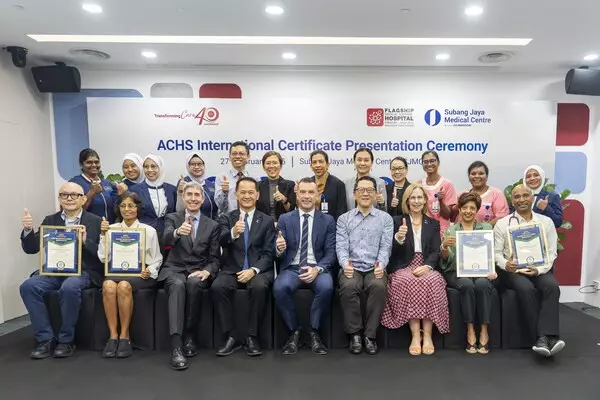
SJMC First in Asia Pacific to Achieve Four ACHSI Centre of Excellence Certifications, Setting a Benchmark for World-Class Care
QIONGHAI, China, March 30, 2025 /PRNewswire/ -- The Sub-forum on Religious Harmony and Mutual Learning Among Civilizations took place at the BFA (BFA) Annual Conference 2025 on March 28. The sub-forum focused on the theme "Countless Dharma Doors Converge in a Square Inch: A Discussion on the Future of Digitization Project of Buddhist Scriptures." The gathering brought together 12 eminent monks and cultural researchers from six countries and regions to explore the current state and future of digitizing Buddhist scriptures. Chaired by Venerable Master Yin Shun, Vice President of the Buddhist Association of China, and President of the Buddhist Association of Hainan Province, the event aimed to advance the preservation and development of Buddhist culture through international collaboration.
BFA’s 10th Religious Sub-forum Highlights Global Digitization Project of Buddhist Scriptures
BFA's Decade of Progress: A Solid Foundation for the Future
Yin Shun, reflecting on the ten-year journey of the BFA Religious Sub-forum, noted its steadfast commitment to the foundational goal of building a global community united by a common destiny. The sub-forum has been instrumental in promoting religious harmony and fostering cross-cultural dialogues, while also enhancing international cooperation in the fundamental domains of religion, culture, education, philanthropy, and healthcare. A notable achievement of the sub-forum has been in the area of digital preservation and accessibility of Buddhist teachings. It has effectively used digital technology to compile the Encyclopedic Dictionary of Chinese Buddhist Terms and has facilitated the digital translation of Buddhist classics across the economically important Pan-South China Sea region. Furthermore, it has proposed initiatives to raise the digitization of these texts as a major national concern. The South China Sea Buddhist Academy, China's premier international Buddhist educational platform targeting Southeast Asia, has made significant contributions by educating 106 international students from several nations, most notably from Laos, Mongolia, Cambodia, and Nepal, and, by doing so, playing a crucial role in the international effort to digitize Buddhist scriptures.
Digital Empowerment: Advocating for the Chinese Adaptation of Buddhism
Ven. Guang Quan, Deputy Secretary General of the Buddhist Association of China and President of the Buddhist Association of Zhejiang Province, noted the crucial role of digitizing Chinese Buddhist scriptures in enhancing the international dissemination of Buddhist culture. He highlighted the accomplishments of Hangzhou Lingyin Temple in this area, including the development of an AI-based OCR engine for ancient books, production and tool platforms for digitizing ancient books, and a Buddhist scriptures reading hub. Building on these advancements, efforts are underway to digitize Buddhist canons, citing, in particular, the Jingshan Canon, the Yongle Northern Canon and the Siji Canon. Guang Quan's initiatives aim to further the interconnection of civilizations through digital technology, breathing new life into Asian Buddhist wisdom in the digital realm.
Bhikshu HUIMIN, President, Comprehensive Buddhist Electronic Text Archive Foundation (CBETA) Taiwan, China, reflected on the establishment of the Electronic Buddhist Text Initiative (EBTI). He provided an overview of the current status of global Buddhist text digitization, highlighting its evolution from digital archives (DA) to digital humanities (DH). Additionally, he unveiled the groundbreaking concept of Artificial Intelligence and Brain-Computer Interface (AI - BCI) for the digitization of Buddhist culture. He stressed that the transition of Buddhism from traditional scriptures to cloud-based platforms represents not only the future of Buddhism but also a new civilization where mindfulness and technology merge.
Hong Xiang, Research Assistant at the Centre of Buddhist Studies, The University of Hong Kong, highlighted the transformative impact of digital technology on the collation and proofreading of the Dunhuang manuscripts, starting from the digitization project. He noted that the preservation of the Dunhuang manuscripts, which embody the essence of a multi-faceted and symbiotic civilization, demands interdisciplinary collaboration. Moreover, he advocated for global resource sharing in the digitization of Buddhist scriptures.
Zhu Cuiping, Editor-in-Chief of Zhonghua Book Company GuLian (Beijing) Digital Media Tech Co., Ltd, China, pointed out that the digitization of Buddhist scriptures is an enormous undertaking that requires a collaborative effort among the government, religious organizations, universities, research institutes, and publishing entities. She called for the initiation of a global initiative to compile Buddhist literature to drive the worldwide project of digitizing Buddhist scriptures.
International Cooperation: Jointly Advancing the Global Digitization Project of Buddhist Scriptures
The sub-forum placed particular emphasis on the contributions of Japanese and Korean Buddhism to the digitization of Buddhist scriptures. KAWANAKA KOKYO, Director-General of Administration of Jodoshu, Japan, presented the "Digitization of ZÅjÅ-ji's Three Great Buddhist Canons" project. He urged all parties to collaborate in furthering the global effort to digitize Buddhist scriptures, with the aim of fostering a more peaceful and harmonious future for humanity.
JONG-RIM, Honorary Chairman of Tripitaka Koreana Research Institute, Jogye Order of Korean Buddhism, shared insights from the digitization efforts of the Tripitaka Koreana at Haeinsa Temple in Korea. He proposed the future goal of completing a comprehensive Tripitaka and developing a dictionary of concepts and terms utilizing digital technology.
South China Sea Buddhist Friendship Circle: Fostering Digital Connections
The sub-forum highlighted the role of the South China Sea Buddhist Friendship Circle in the digitization of Buddhist scriptures. Ven. PHRAPROMMASITH (Thongchai Sukkayano) Supreme Patriarchs, elaborated on Thailand's experience in safeguarding Buddhist cultural heritage. He urged international cooperation to facilitate the digitization of Buddhist scriptures, aiming to provide convenient access to anyone anywhere with an interest in reading and better understanding the Dharma.
SANDI MARBHIVAMSA, Chairman of Sangha Maha Nayaka Committee, Myanmar, and Ven. (Dr.) KIRINDE ASSAJI, Chief Prelate (Malwatta Chapter) Sanghanayaka of Sri Lanka's Western Province, provided insights into the current state of Buddhism in their respective countries and the advancements made in the digitization of Buddhist scriptures. They both expressed a strong willingness to collaborate with Buddhist communities from other nations in these endeavors.
Looking to the Future: Consultation, Collaboration, and Sharing
Ven. YAN JUE, President of the Buddhist Association of China, concluded by emphasizing that Buddhist scriptures represent a shared cultural heritage of humanity. He noted that their digitization presents not only a technical challenge but also a cultural mission. He also underscored the commitment of the Chinese Buddhist community to the global governance principles of consultation, collaboration, and sharing. By partnering with Buddhist and academic communities worldwide, they aim to advance the digitization of Buddhist texts, share the outcomes of these efforts, and further disseminate the teachings and scriptures of Buddhism.
** The press release content is from PR Newswire. Bastille Post is not involved in its creation. **
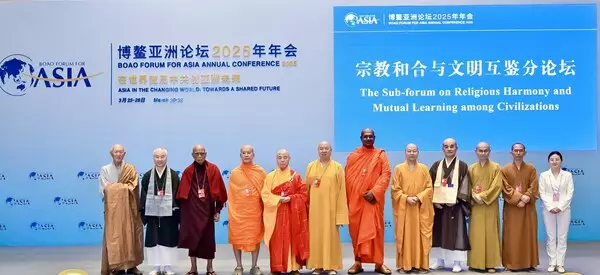
BFA's 10th Religious Sub-forum Highlights Global Digitization Project of Buddhist Scriptures








